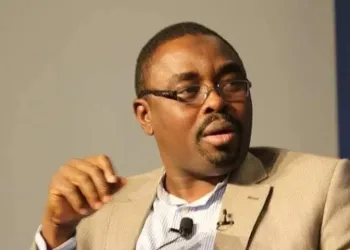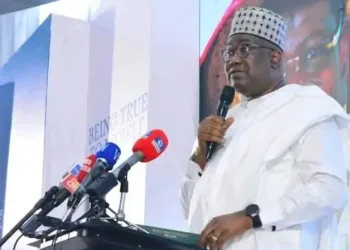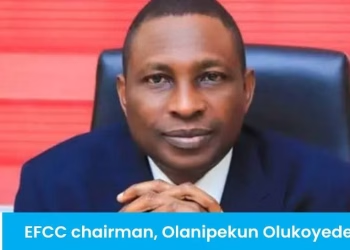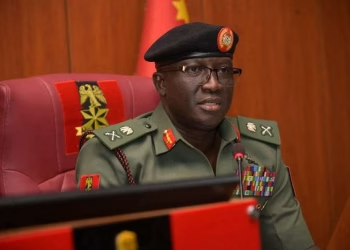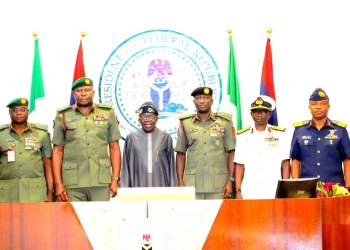The Centre for 21st Century Issues (C21ST) has expressed serious concerns over the recent composition of the Economic Advisory Council by President Bola Tinubu.
C21ST considers the exclusion of women and young people in the strategic advisory council on the economy as retrogressive and therefore unacceptable. While the Economic Advisory Council is a commendable initiative, the exclusion of women and young people who are active stakeholders across sectors of the Nigerian economy is a huge flaw that should be urgently reconsidered.
It is crucial to support the President in his efforts to revitalize and reposition the economy for sustained growth and prosperity.
However, the exclusion of a critical segment of Nigerians raises doubts as to the readiness to find lasting solutions to Nigeria’s economic challenges. While respecting the President’s prerogative in selecting advisors, it is essential to demand the inclusion of women and youths in the economic advisory council as a demonstration of the commitment to genuinely address the economic challenges.
We contend that the critical constituencies of the society should not be left out of such a platform of national importance; particularly considering the roles Nigerian women and youths have played and continue to play in the areas of entrepreneurship and as well as in changing the narratives of leadership and governance at national and international levels.
We recognize that the National Economic Council (NEC) established by the provisions of the Constitution of the Federal Republic of Nigeria, 1999, as amended in Section 153(1) as contained in Paragraphs 18 & 19 of Part I of the Third Schedule remains the statutory body saddled with the mandate of oversights over the national economy.
Notwithstanding, we are disappointed that President Tinubu left out representatives of critical constituencies particularly women in the recent composition of Economic Advisory Council which, from all indications, would be strategic to engaging the presidency on matters that bother on fiscal policies as well as issues relating micro and macroeconomics.
We also express our reservations regarding some of the individuals that currently dominate the Economic Advisory Council. We do not agree that a few individuals who have been recycled over the decades should enjoy the exclusive preserve of offering advice on the national economy at this critical moment. We consider it pertinent to alert the President that Nigerians expect new ideas and innovations rather than mere revisionism if the much-needed impetuses for stimulating economic growth and inclusive prosperity are to be enhanced. Thus, realizing that Economic Advisory Committee was set up to offer solutions to the ramified economic challenges that has increased the levels of multi-dimensional poverty and miseries in the country, we expect that critical constituencies including platforms of women and youth that constitutes growing numbers of entrepreneurs in the country ought to be included to avail the president as well as the government the opportunity to holistically and robustly respond to the yearnings and aspirations of the people.
We would therefore enjoin Mr. President to urgently redress the anomaly in the composition of the Economic Advisory Council to pave the way for an inclusive engagement at such a critical platform aimed at resuscitating the ailing economy.
In light of the President’s remarks at the inauguration of the Economic Advisory Council that the collective efforts of all sectors of society, spanning from students to parents and traders is required to address various challenges, the exclusion of women and youths therefore raises concerns. Governor Soludo’s recognition of the collective contribution of Nigerians towards improving the national economy further underscores the importance of inclusive participation.
Women which constitute nearly half of Nigeria’s population with young people accounting for about 70% of people under 30 have been significantly negatively impacted by the worsening economic downturn which further underpin their inclusion towards finding lasting solutions to the economic challenges.
We firmly believe that a more inclusive composition of the Economic Advisory Council, incorporating individuals with diverse expertise and innovative ideas, particularly from underrepresented constituencies, would enhance the efficiency.
The Centre for 21st Century Issues therefore calls on the President to expeditiously review the composition of the Economic Advisory Council to ensure inclusivity, enabling a broader spectrum of perspectives and expertise to drive more impactful solutions that resonate with all Nigerians.
Titilope Akosa
Executive Director,
Centre for 21st Century Issues



